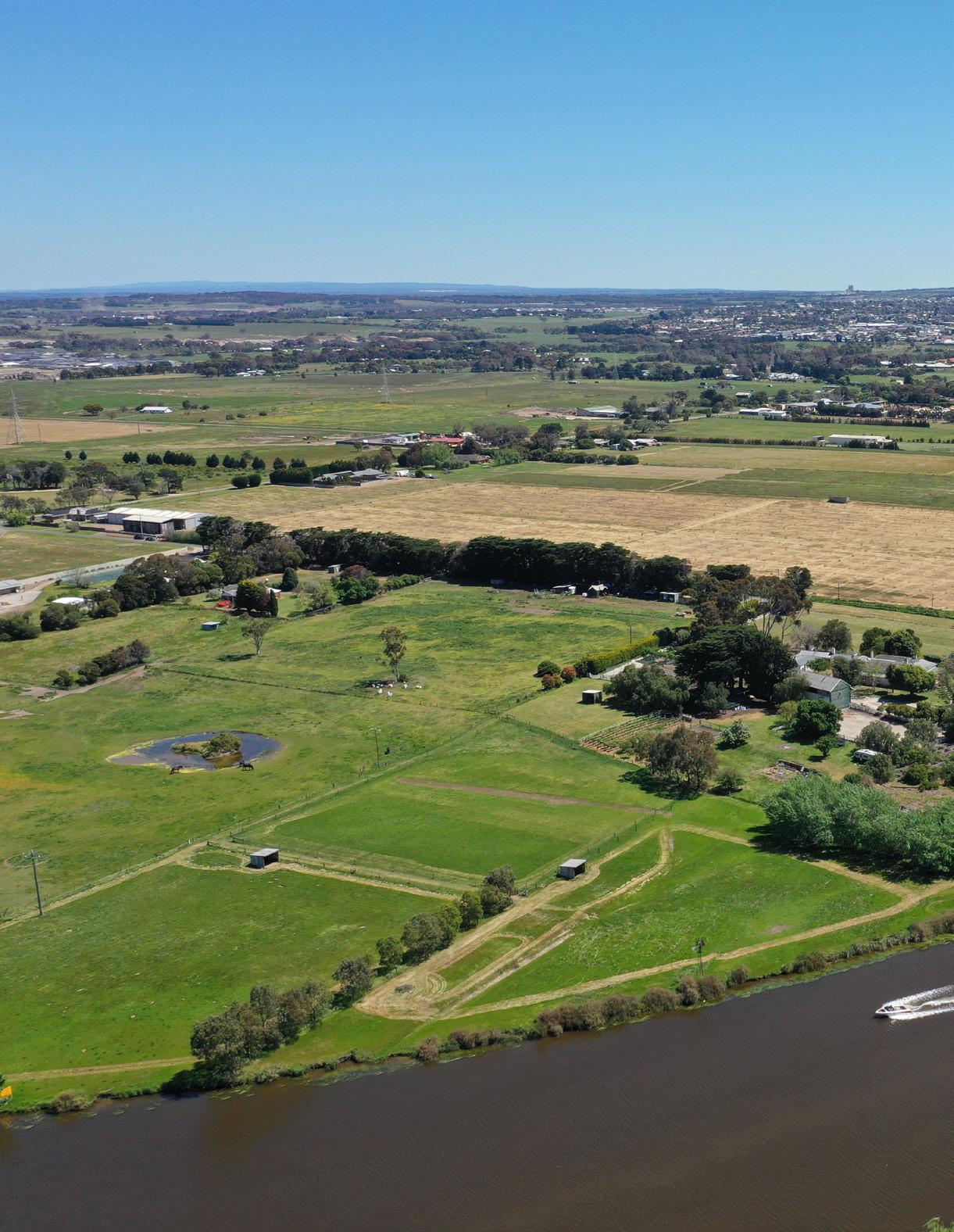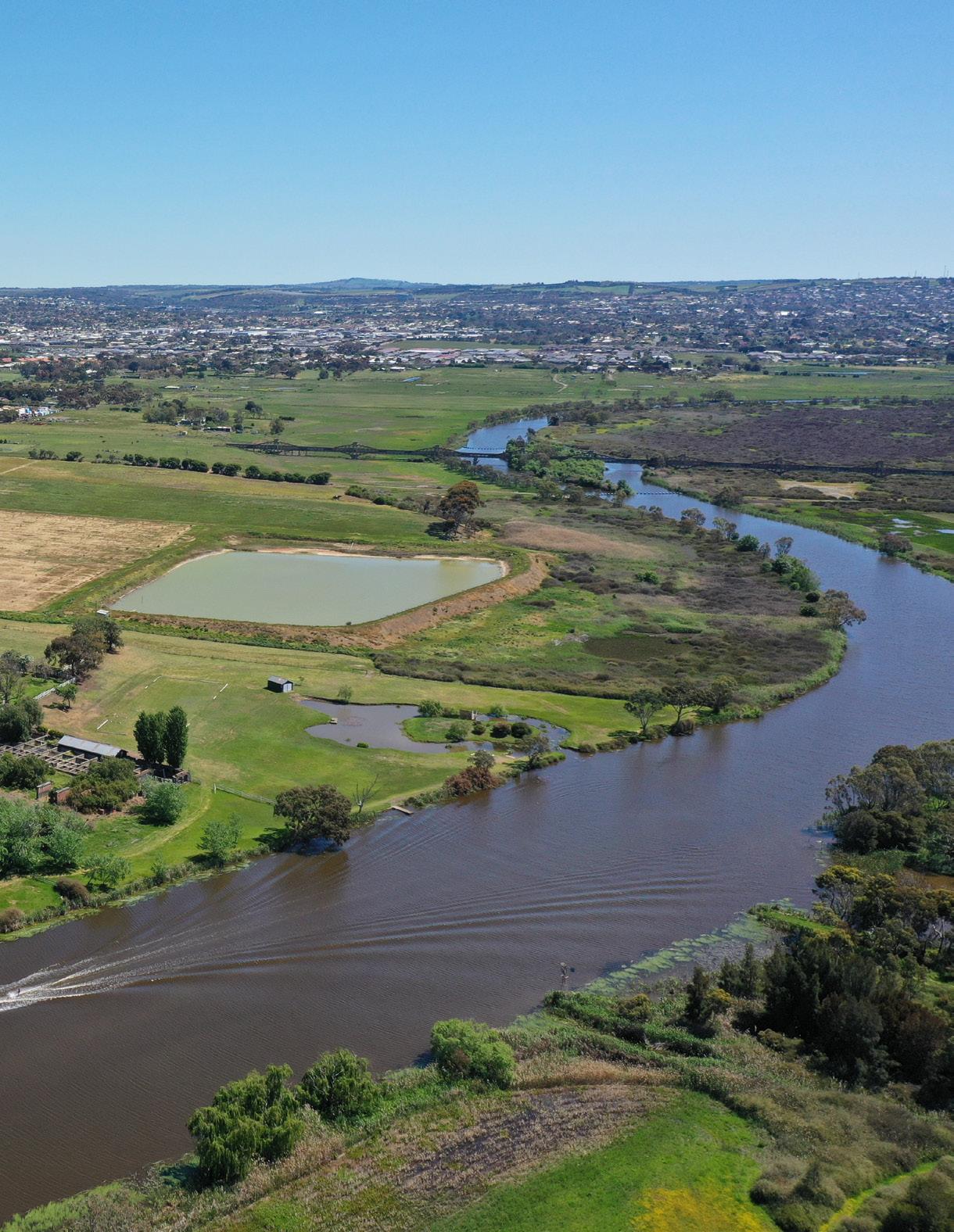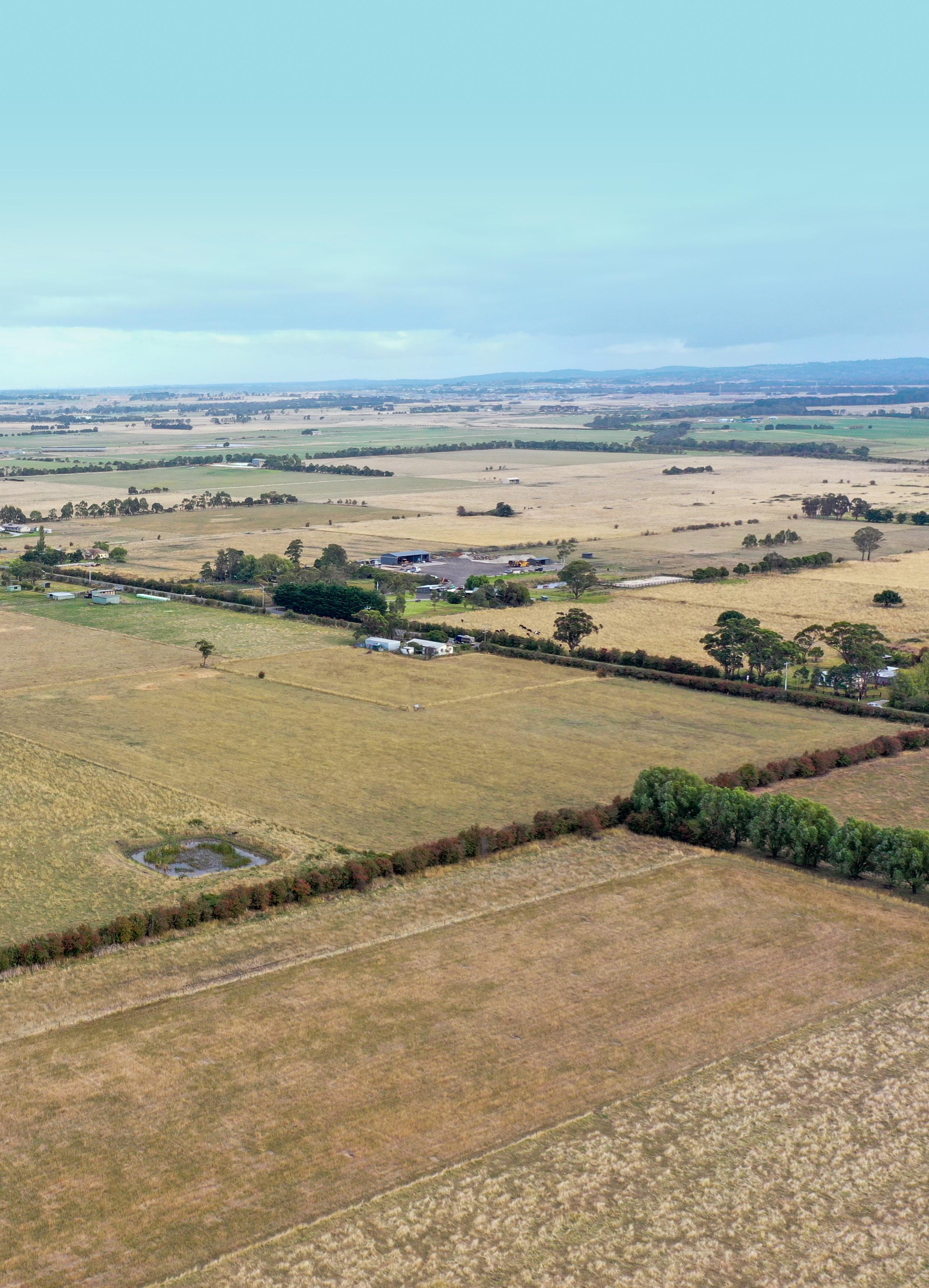
11 minute read
Key Considerations when Selling a Property in Victoria
Selling a property in Australia can be a complex process, and there are several legal, financial and tax considerations that should be taken into account .

Advertisement
The extent of these considerations will vary depending on several factors, such as the nature of the property, the length of time the property was held, and the purpose for which the property was used.
Below are some of the key points you should consider when selling a property in Australia.
1. Is my Property subject to Capital Gains Tax?
If your property was originally purchased as an investment, and not as your primary residence, any profit you make on the sale of the property may be subject to Capital Gains Tax (CGT). If you brought the property for development or resale, then any profit might be on income account and CGT concessions will not be available to you.
CGT is calculated based on the difference between the sale price and the original purchase price, and the rate will vary depending on your income, and the length of time that you have owned the property. The factors you should consider, to determine whether your property will be subject to CGT are:
(a) When you acquired the Property
Assets you acquired before 20 September 1985 are exempt from CGT. However, if you make major capital improvements after CGT started, the improvements may be treated as separate assets that are subject to CGT.
An addition or improvement of an asset, such as a house renovation, is a major capital improvement, if its original cost:
(i) exceeds 5% of the amount you received when disposing of the asset; and
(ii) is more than the improvement threshold for the income year in which the asset is disposed of.
However, CGT may exemption may apply:
(i) if the property is your main residence and the major capital improvements are used as part of your home; or
(ii) to the improvements made on adjacent land if the total land is 2 hectares or less.
The improvements are not exempt if they are used to produce income.
(b) Type and Use of Property
CGT will not apply if the property being sold was your primary residence for the entire period of ownership.
However, if you rented out any part of the property during this period, or used any part of the property for income producing purposes (such as running a home business) CGT may still apply.
(c) The Ownership Period
If you have owned property for more than 12 months, then you may be eligible for a fifty per cent CGT discount.
(d) The Cost Base
The cost base is an important factor because it is used to determine the capital gain or loss on the sale of your property.
SOLD
2023
It represents the original cost of acquiring the property, plus any expenses incurred in acquiring, holding and disposing of the property. The cost base can also include any capital improvements made to the property during the ownership period, such as renovations or extensions.
The capital gain in this circumstance is calculated by subtracting the cost base from the sale price. If the sale price is higher than the cost base, the seller has made a capital gain and will need to pay CGT.
(e) Other Factors
There may be other factors that could affect whether the sale of your property is subject to CGT, such as your residency status, whether any of the CGT exemptions apply, or the application of any other CGT concessions.
2. Do I need to pay Goods and Services Tax (GST)?
If you are considering selling your property, you will need to consider GST implications of the proposed transaction.
In general, the sale of a private, residential property will be exempted from GST, even where the property is an investment.
However, GST may apply in circumstances where you are running a business and are registered for GST, if you are selling a property that is considered to be a “new property” (that is, it has never been sold before), or if the property is considered a business asset, such as farm land.
If your sale is subject to GST, you will need to pay GST on the sale price of the property, generally being 1/11th of the total price paid by the purchaser. There are various ways GST can be factored into the price of the property. For example, you may choose to sell the property ‘plus GST’, in which the purchaser must pay an additional 10% over and above the price of the property. Alternatively, you can choose to sell the property at a GST inclusive price, where the purchaser pays the amount shown on the contract, but then you will be required to pay 1/11th of that price to the ATO as GST. In some cases, the margin scheme might apply.
Sale of land used for primary production
Generally, the sale of land used for primary production is not exempt from GST. However, certain provisions may make the sale of such land GST-free in specific circumstances. One such circumstance is when the sale is a supply of going concerns, which will be GST-free if:
(a) the supply is for consideration;
(b) the recipient is registered or is required to be register for GST;
(c) the parties have agreed in writing that it’s a going concern;
(d) the supply includes everything necessary for the continued operation of the enterprise; and
(e) the supplier carries on the enterprise until the day of supply.
Another circumstance is where the land is a farmland for farming. In this case, the supply will be GST-free if:
(a) the land has been used for a farming business for at least five years prior to the provision of the supply; and
(b) the recipient intends to carry on a farming business on the land.
A supply of potential residential land subdivided from land used for primary production may also be GST-free if:
(a) the subdivision of the land is from the land used for farming business for a minimum of five years; and
(b) the supply is made to an associate without consideration or for a consideration less than the GST inclusive market value of the supply.
The term “potential residential land” refers to land that is permissible to use for residential purposes but does not contain any residential premises.
It is important to note that the tax consequences of selling a property can be quite complex, and will vary depending on the circumstances. It is always advised to seek professional advice to ensure you are fully informed prior to selling your property.
(a) Assets
When you sell a property, you may need to consider how the proceeds from the sale will impact your overall estate plan. For example, you may need to update the valuation of your estate or adjust the distribution of assets to ensure your intentions are still met.
Other
taxes - keep in mind
the
Implications Of
the Windfall Gains Tax if the property has been rezoned since you purchased it, and after the act came into force. There are other taxes and levies that apply to foreign purchasers, to vacant residential land, and the Melbourne City car park levy.

3. Should I review my Will?
If you sell a property in Australia, it is important to review your will to ensure it still effectively reflects your intentions and estate planning objectives.
(b) Beneficiaries
If the sale of the property impacts your beneficiaries, or your intended distribution of assets, you may need to revise your will accordingly. This may include adding or removing beneficiaries, adjusting their share of your estate, or changing the type of assets they receive.
(c) Executor
If you have appointed an executor to manage your
Sold 2021
Using water rights as an example, we have highlighted some of the key considerations below.

(a) Tax Implications
The sale of water rights (with the property) may be subject to CGT, calculated in the same way as specified above, if the rights were originally acquired as an investment.
There may also be implications for GST if the sale of the water assets with the property is considered a “taxable supply”. For example, if the property includes a water license that allows you to extract and sell water as a commercial activity, then the sale of the property and its assets may be considered a taxable supply, and GST may be charged. Similarly, if the property included a water storage or treatment facility that is used for commercial purposes, then GST may also apply.
If GST applies, you will need to properly account for this in the sale of your property.
(b) Legal and Regulatory Considerations
The sale of some assets, such as water rights, is regulated by both state and federal legislation, and may require certain approvals or permits. Depending on the type of water rights being sold, there may be restrictions on the sale or transfer of those rights, and the buyer may need to satisfy certain eligibility criteria before purchasing.
estate, you may need to consider whether the sale of your property impacts their role or responsibilities. For example, if the property was a significant asset, the executor may need to take additional steps to manage the sale proceeds.
(d) Legal Implications
Depending on the nature of the sale, there may be legal implications which impact your estate plan. For example, if the property was held in joint tenancy with another person, the sale may trigger a right of survivorship that impacts your intended distribution of assets.
4. Are any assets being sold with the Property?
The sale of a property with substantive assets may be subject to tax implications, as well as other legal and regulatory considerations.
(c) Valuation
The valuation of assets, like water rights, can be complex and vary depending on a range of factors, including the type of water rights, the location of the water source, and the current market demands.
It is generally recommended that a professional valuer or expert be engaged to value the water rights and assist with the sale.
(d) Documentation
It is important to ensure that all necessary documentation is in place and executed to facilitate the sale of an asset. This may include contracts, deeds and other legal agreements.
5. General Due Diligence
Before selling a property, it is important to conduct due diligence to ensure that all legal obligations have been addressed prior to selling the property.
In our experience, the key considerations (that can often be overlooked) when conducting due diligence relate to title boundaries and whether any interests exist, affecting the land.
(a) Considering Title Boundaries
It is not uncommon to encounter discrepancies in property boundaries, which can have negative implications on the development potential and financing options of a property. Therefore, before buying or selling a property, it is important to verify the title boundaries to ensure they are accurate.
Providing the buyer with accurate boundary information, ensures not only that you are selling what you legally own, but also that the buyer is purchasing what is being advertised in the contract of sale. Any discrepancy in the boundary information can lead to disputes over ownership, which can ultimately delay the sale of your property.
On the other hand, before signing a contract for the purpose of a property (especially if the property is a farmland), the buyer should check the measurements of the actual occupation of the property. In some circumstances, if the property is a farmland, the farmland fences may not align precisely on the title boundaries.
Moreover, the boundary of the property will affect its value. Accurate boundary information is necessary to determine the true size of the property, and to determine the value of the property for sale.
In order to ensure the title boundaries of the property are accurate prior to signing a contract for the sale or purchase of a property, you should review the property’s title documents and, engage a licensed surveyor to conduct a title survey to verify the boundary of the property.
(b) Any Interests Affecting the Land
It is also necessary to investigate any interests affecting the land that may impact the sale.
These interests may include easements, covenants, or other agreements that affect the use or development of the property. You must also ensure all title documents provided to the buyer are accurate, and up to date.
This is because, in Victoria, a seller is required by law to disclose any known interests affecting the land to the buyer. If you fail to do so, you may be liable against the buyer, for rescission of contract and any financial losses they suffer as a result.
Additionally, any interests that affect the land can also impact the value of the property or its developmental potential. For example, an easement or restrictive covenant may limit the use of the land, and may potentially reduce its value. In ensuring that you determine whether any interests affect the land you are selling, you can accurately price the property and ultimately avoid either over, or under valuing it.
6. Section 32 Vendors Statement: What needs to be included?
A Section 32 Vendor’s Statement is a legal document that must be provided by the seller to the buyer in most property transactions in Australia. The purpose of the statement is to provide the buyer with important information about the property being sold, and to help them make an informed decision about the purchase.
It is important to note that if you sell your property, and the Vendor’s Statement does not comply with section 32 of the Sale of Land Act 1962 (Act), the purchaser may rescind the contract at any time up until settlement. It may also constitute an offence under the Act, and you may incur financial penalties.
Some of the information / documents required to be disclosed in a Section 32 Statement include:
(a) Financial matters affecting the land;
(b) Details of any building and land insurance (if the property is at risk of the purchaser from the day of sale) and owner builder insurance;
(c) Disclosure of any (registered or unregistered) easements, covenants or other restrictions affecting the land including description of the restriction and information of existing failure to comply to the restriction;
(d) Provide particulars of any notice, order, declaration,
Sold 2022
report or recommendation of a public authority or government department or approved proposal directly and currently affecting the land which the seller might reasonably be expected to have knowledge;

(e) Details of any building permits issued in the previous seven years;
(f) Details of any owners corporation;
(g) If the property is a growth area land zoned for urban use and development and is subject to growth areas infrastructure contribution (GAIC), copies of the GAIC certificate(s);
(h) Details of services (electricity, gas, water, sewerage or telephone) that are / are not connected to the property; and
(i) Disclosure of certain title documents. These include:
(i) a Register Search Statement (title search);
(ii) diagram location in the Register Search Statement that identifies the land and its location;
(iii) certain plans of subdivision; and
(iv) evidence of right to sell where the vendor is not registered on the title (if applicable).
Given the complexities of the Section 32 Vendor Statement, and the implications of failing to disclose all material information, if you are considering selling your property, it is important to seek professional advice to enable the process runs smoothly, and ensure that all legal requirements are adhered to.
If you require any assistance for the sale of your property. Please contact Rhett Oliver or Michael Lanyon of the Colin Biggers & Paisley Property and Development Group.
Rhett Oliver
D +61 3 8624 2023
M +61 414 948 897 rhett.oliver@cbp.com.au
Michael Lanyon
D +61 3 8624 2161
M +61 412 496 919 michael.lanyon@cbp.com.au







